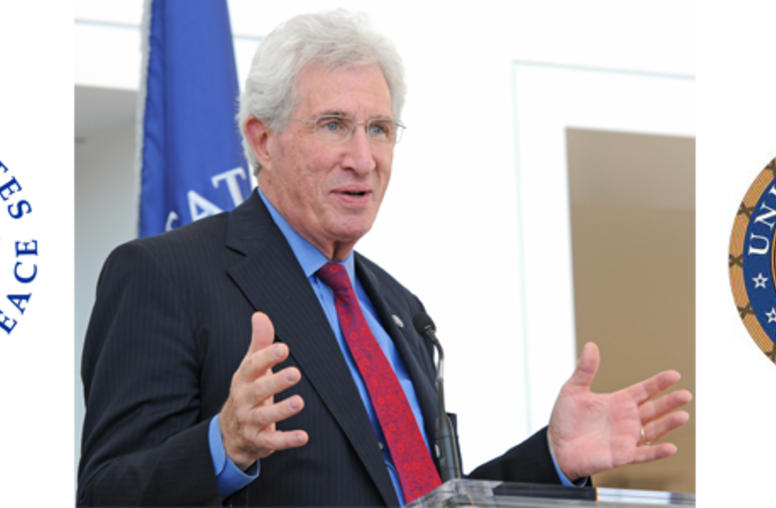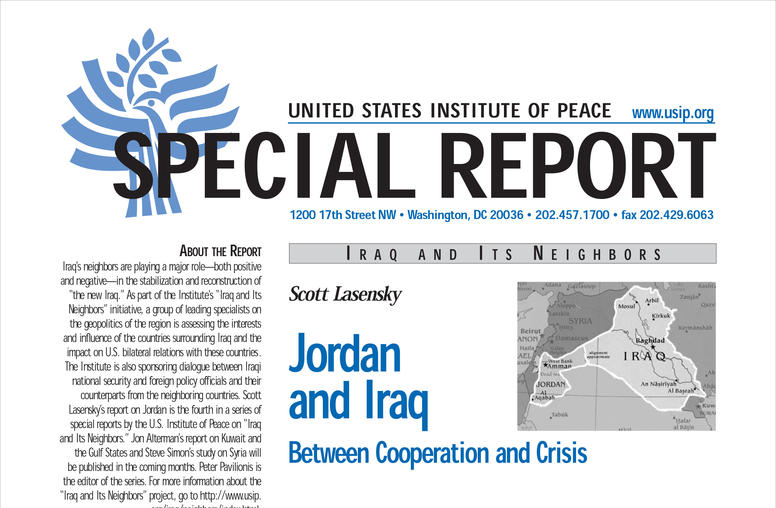Question And Answer
Publications
Articles, publications, books, tools and multimedia features from the U.S. Institute of Peace provide the latest news, analysis, research findings, practitioner guides and reports, all related to the conflict zones and issues that are at the center of the Institute’s work to prevent and reduce violent conflict.
2001 National Winning Essay
Stefanie Nelson Bountiful High School Bountiful, Utah Coordinator: Julia Nelson Third party intervention in civil wars must be re-conceptualized as the collision of two competing philosophies: sovereignty and humanitarianism. On one hand, principles of sovereignty dictate that the people of a state should decide their own course; on the other hand, the bloodshed of innocent human life invokes humanitarianism concerns that motivate action by the international community. Instead of respo...
2006-2007 Winning Essay
National First Place Winner Wendy Cai Corona Del Sol High School Tempe, Arizona Coordinator: Virginia Teeples In 2002, United Nations (UN) Secretary-General Kofi Annan solemnly declared, "To accept the use of child soldiers in conflict is to accept the destruction of our future, one child at a time... we must reclaim them—every one of them."1 It is critical to understand the legacy of child soldiering and its implications for peacebuilding in order to help young soldiers rejoin civil so...
2005-2006 Winning Essay
National First Place Winner Kona L. Shen The Northwest School Seattle, Washington Coordinator: Mr. Jeff Blair Since the dawn of the nuclear age and the subsequent onset of the Cold War, tense arms races have swept the world, threatening global security. Many nations, however, have recognized the danger of global proliferation and chosen to dismantle their nuclear programs.1 While countries such as Brazil and Argentina have dismantled their programs rapidly and successfully, other nuclea...
2004-2005 Winning Essay
National First Place Winner Jessica Perrigan Duchesne Academy Omaha, Nebraska Coordinator: Ms. Virgie Oatman Fukuzawa Yukichi, the foremost proponent of modern education in Japan, expressed an essential truth of civilization when he said “schools, industries, armies and navies are the mere external forms of civilization. They are not difficult to produce. All that is needed is the money to pay for them. Yet there remains something immaterial, something that cannot be seen or heard, bough...
2003–2004 National Winner
Vivek Viswanathan Herricks High School New Hyde Park, New York Coordinator: Ms. Melissa Jacobs While the resolution of armed conflict may bring initial order within a war-torn nation, it does not guarantee long-term peace and stability. Establishing an orderly society from the ruins of war—enacting a workable political, economic, and social structure in a place where violence and instability have been the rule—is an undertaking that is necessarily complex. Moreover, the discontinuation of...
2002–2003 National Winner
Kevin Kiley Granite Bay High School Granite Bay, California Coordinator: Ms. Rita Prichard War causes harm; of this there is no doubt. In determining the justification of war, the question hence becomes: when is it justified to cause harm? The only morally acceptable answer is that causing harm is justified if it prevents further harm. Thus, in general terms, the only justifiable reason to go to war is to minimize harm—if war is the lesser of two evils. Underlying the issue of just and u...
2001–2002 National Winning Essay
David Epstein Pikesville High School Baltimore, Maryland Coordinator: Mr. Martr Hotz With the end of an era when nations have habitually realized their territorial ambitions on the battlefield and with the dissolution of the Soviet Union, large-scale rivalries between countries have mostly given way to internecine conflicts. These clashes have been precipitated by a host of factors: military coups by rapacious generals, conflicting political ideologies, and most significant of all, tra...
Religion, Conflict, and Education
USIP's Current Projects on Religion, Conflict, and Education Curricular Material for Madrassas In Indonesia, USIP is working with local Islamic scholars and clergy to develop curricular materials that provide contemporary interpretations of Islamic texts on peace, violence, interfaith relations, human rights, the status of women, and the environment. Materials developed in Aceh have been piloted and embraced by local ulama. The materials are currently being translated into English and...

Congressional Testimony: Institute President Richard H. Solomon and the Institute's Budget Request for Fiscal Year 2001
Remarks by Institute President Richard H. Solomon.
